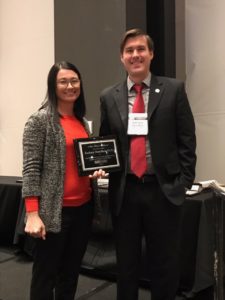
Zachary Hamilton, Ph.D., is currently an Associate Professor and Graduate Director in the Department of Criminal Justice and Criminology and the Director of the Institute of Criminal Justice at Washington State University. Born in Iowa, he met his wife Sarah at the University of Iowa and is the father of two boys, Elijah and Otto. He completed his Bachelor’s degree at the University of Iowa before receiving his Master’s and Doctorate from Rutgers University. He was previously employed as a Senior Research Associate at the Center for Court Innovation (CCI) and the National Development and Research Institutes (NDRI). Over the course of his career, he has authored 35 peer-reviewed publications 25 technical reports, and 2 books.
With an applied research focus, he has worked with state and county agencies, both adult and juvenile, in 15 states. This work has resulted in external research funding of nearly 3 million dollars. His current work focuses on risk-need assessment and identifying responsive populations for program and service matching.
His adult correctional assessment instrument, the Static Risk offender Needs Guide – Revised (STRONG-R) is currently implemented for state prison, parole, and probation populations in Nebraska, Tennessee, and Washington State. He has also developed pretrial assessment tools for counties in Washington State and his juvenile risk assessment, the Modified Positive Achievement Change Tool (M-PACT) is outlined for implementation in Washington, Iowa, and Delaware.
He was recently awarded an Office of Juvenile Justice and Delinquency Programming (OJJDP) Field Initiated Research Evaluation (FIRE), collecting juvenile risk-needs assessment, recidivism, and program data from 10 states. The study aims to optimize juvenile risk assessment for each state with a sample size estimated to be 1 million cases.
He is exceptionally proud of his work with graduate students, chairing six dissertations over his eight years at WSU, with each finding gainful employment as research or tenure track academic positions. With an additional five set to graduate this year, he hopes to move the field forward with his own work and vicariously through the achievements of his students.